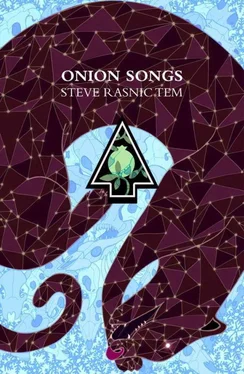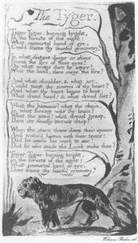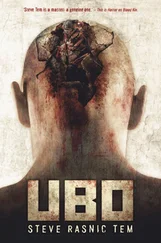But even without the green dog and the dead man in his sorry chair, there were still things the man in the mirror could do to entertain himself. He might follow the trail of a ray of light as it made its way from that other world of more limited possibilities, through the silvered glass and into the unlimited realm he called home. He might stay with that ray for a time as it distorted against the furniture of his world and made itself into colors as fragile as the last thoughts before sleep. He might step in front of that light and grin as it distorted his carefully formed image, turning it into water and cloud and dark. He might paint the sky of his world with the fragments of his own brittle image.
He might step through the silvered glass and take the place of a dead man.
* * *
How strange, thought the man in the mirror, to see the man you were and feel nothing but embarrassment and shame.
Without breathing, the man from the mirror watched the man he might have been sleep, feeling curiously empty, even of humor. He attempted a grin but could not maintain it in the coarser atmosphere of this more mundane world. In frustration he kicked at the dead man’s leg, which swung swiftly away from the blow. The man from the mirror was surprised by the quickness of the dog, only just hearing its growl before it clamped its jaws around the mirror man’s own leg. The mirror man felt no pain, of course, or irritation. He observed the dog with vague interest until it released his leg and slunk into its corner by the old brown chair and its dead master, watching the mirror man with fear and anger. The mirror man did not fear the dog but still decided he would not strike his dead counterpart again.
How strange to see yourself yet not see yourself at all, the man from the mirror thought, watching the version of himself, which ironically was far more real than himself, collapse into decay inside the ancient brown chair. The mirror man could not bring himself to feel sorry for the man he’d actually been, because that man had already felt far too sorry for himself. The man from the mirror understood all too well that life was in large part image and reflection: you create an image of yourself out of light, dust, and air, and you send that image out into the world while you sit home alone in your rotting brown chair counting flies. If because of that image you achieve some sort of success or someone loves you, then it’s all for the good. If the image fails, it’s all just dust and light anyway, so what do you have to complain about? Real people whined endlessly—in the abstract realms of the imagination you could hear their distant voices scraping at the gates, so much so that the dwellers in dream could hardly hear themselves sing sometimes.
The mirror man looked down. The green dog was at his feet, gazing up with eyes veined in yellow and red. Shoo, the mirror man said to the dog. Go away.
The green dog urinated on the mirror man’s imaginary leg.
All right! the mirror man shouted. He loved things! He loved his wife, he loved his children, his grandchildren, the mirror man said, gazing over at the putrefying corpse, though he was a bit soft and dreamy at times. It would have been better for his children if he’d been firmer
The mirror man felt the familiar warm liquid running down his oh-so-perfectly imagined leg, wetting the stiff, unwrinkled socks, staining the shiny-with-never-a-polish shoes. He glared down at the grinning, grinning green of the dog. Okay! He loved and was loved. He believed life was hard enough that no one has the right to make things more difficult for anyone else. He loved the beginning of the day when the spreading light awakened the light and color of everything it touched. He loved the end of the day and the smell the fading light and heat left behind. Sometimes he had trouble with the in-between times, mind you…
The green dog growled and the mirror man stepped back. But he tried , that’s the important thing, he did his best, he made an effort. He loved making things, even if it was just another space with a light bulb hanging over it, and then he loved telling what people might do in this space, he loved clubhouses, libraries, and family rooms, he loved telling stories, he loved just having something to do, he tried to invent new occasions to celebrate with his offspring and theirs, he loved inventing holidays, he loved turning everything into play, he loved seeing, and smelling, and dreaming of everything, including all the things he would never be. He loved making the effort. He loved trying.
The mirror man sank into himself then, spent and, much to his surprise, saddened by the longest speech he’d ever made in a life at least as long as that of the dead man in the brown chair.
The green dog devoured him with one last long and lingering look, then departed the house he’d raised children and grandchildren in, mourned a wife and dreamed his less-than-practical dreams in, looking for what lay outside, and what lay beyond.
The dead dream all night the life we have this morning. They love the way we, who know so little of sleep, try to drive it from our bodies with the day’s first yawn.
Almost as much as they love the bright yellow of egg on plates they used to own.
Almost as much as they love the sadness of cupboards, and the years tucked inside so carelessly, with no thought of meaning, or the eventual shape of it all, lying in the dust disarrayed.
They watch us from the rough boles of forgotten trees, the ones left unnoticed between the buildings and on the edges of town, sharing the space with termites and fairies, and the carved-in promises, to names whose faces are now beyond the reach of even imagination, whose pronunciation is the arcane prayer we make as our eyes close, too soon, at the end of the day.
But compared to the dead we are a quiet breed. We hold onto longings for decades without speaking their facts. We’ll strangle our children before speaking our minds. The dead recognize our problems with the truth, for they have seen us tremble so many times in the wake of their passing.
How often have we seen that color, that pale color unlike any other, astray in the last moments of sunset, a thread of it tracing the slant of the spring rain, and just a touch around the eyes of the child we love past reason? It’s the color of a dead mother’s heart, but we cannot bring ourselves to say so.
And this absence that swells the lungs with shadow, this despair that cannot be whispered or even shouted away, it is this spirit now which animates our days.
The dead understand these things and more. The dead know the music of diminishment and the deceit that bolsters joy. The dead wrap themselves in garments of exhaustion so they might pass unnoticed from night into light. The dead are the rags and the mud, the lamp and the lungs, the stab and the limp and the vulture’s singing mouth of the world. The dead yawn even as we yawn but their throats are yellowed and poisoned by the souring energy of the world. The flowers they hold in their glowing hands have been stolen from the poor, blossoms turning to ash as the dead glide wearily through the world. Their eyes are bald of lashes, turning to glass and scabs as they spread like felons through the world, committing their crimes against crab and dove, child and falcon as they saturate every promising landscape of the world.
For every quiet snowfall is a cold comfort pulled over the dead. Every wayward smile is food for their whispers, every shaded ravine a quarry for the hiss, the whistle, the endless complaint, and whine of the dead. Every butterfly swollen with dusk plays the priest for their hollow pleadings. Every shy and unknowing gesture becomes an invitation for their helmeted kiss.
Читать дальше












